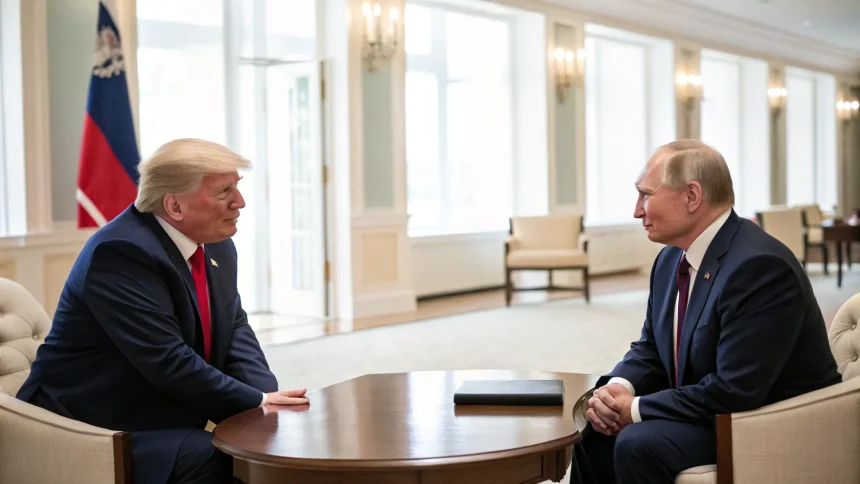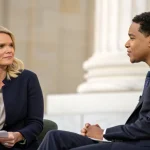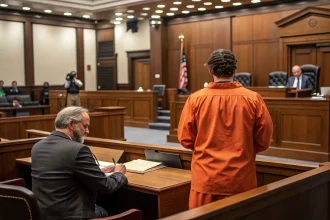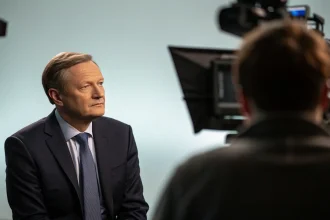President Donald Trump characterized his recent meeting with Russian President Vladimir Putin as “very productive,” while cautioning that negotiations between the two nations remain in progress.
Following the high-level diplomatic engagement, Trump emphasized that despite positive discussions, no formal agreements have been finalized. “There’s no deal until there’s a deal,” the President stated, suggesting that while talks may have been constructive, concrete outcomes are still pending.
Diplomatic Relations at a Critical Juncture
The meeting comes at a time when U.S.-Russia relations have faced significant challenges across multiple fronts, including disagreements over international conflicts, election interference allegations, and competing geopolitical interests.
Trump’s characterization of the talks as “very productive” signals a potential thawing in what has been a tense relationship between the two nuclear powers. However, his careful qualification about the status of any potential agreements indicates that substantial work remains before formal accords might be reached.
Foreign policy experts note that presidential-level meetings between the United States and Russia typically involve discussions on several key issues:
- Nuclear arms control and disarmament
- Regional conflicts in areas like Syria and Ukraine
- Economic sanctions
- Counterterrorism cooperation
Reactions and Implications
The President’s comments have drawn mixed reactions in Washington. Some lawmakers have expressed cautious optimism about diplomatic engagement, while others have raised concerns about the nature of discussions between the two leaders.
Congressional Democrats have consistently pushed for greater transparency regarding Trump’s conversations with Putin, particularly given ongoing investigations into Russian activities related to U.S. elections.
Republican supporters of the administration have generally backed the President’s diplomatic efforts, arguing that direct engagement with Russia serves American interests regardless of political differences.
“There’s no deal until there’s a deal.”
Historical Context
U.S.-Russia summits have historically represented significant moments in international relations, dating back to the Cold War era. These high-level meetings often serve as opportunities to reduce tensions, establish communication channels, and address global security concerns.
The relationship between Washington and Moscow has fluctuated dramatically since the fall of the Soviet Union, with periods of cooperation interrupted by serious disagreements over international norms and spheres of influence.
Trump’s administration has faced particular scrutiny over its Russia policy, with critics alleging too soft an approach while supporters argue for the importance of maintaining dialogue despite differences.
As both nations continue discussions following this meeting, the international community watches closely for signs of any substantive agreements or shifts in policy that might emerge from what Trump has described as productive talks.
For now, the President’s statement makes clear that while dialogue continues, final agreements remain elusive in this complex bilateral relationship.









